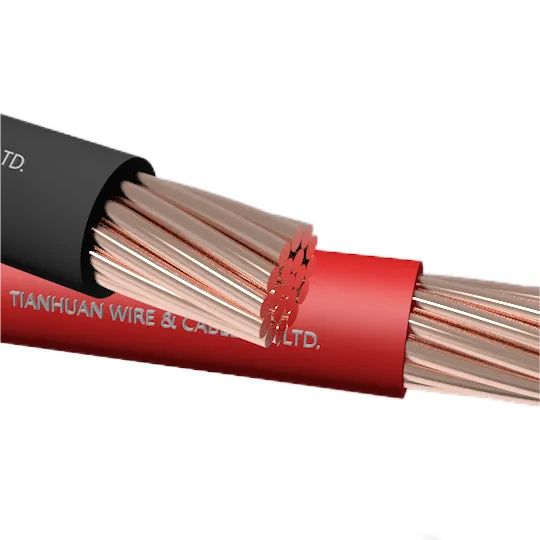
Mineral Insulated Thermocouples Manufacturing Process and Quality Standards Overview
The Rise of Mineral Insulated Thermocouples An In-Depth Look at Manufacturing
In industrial applications, the accurate measurement of temperature is crucial, and thermocouples have emerged as a reliable solution for various settings. Among the different types of thermocouples, one particularly stands out mineral insulated thermocouples (MI thermocouples). Characterized by their durability, precision, and versatility, these devices are essential in industries ranging from petrochemicals to food processing. The factories that specialize in manufacturing MI thermocouples play a pivotal role in this sector, ensuring that these reliable tools are available to meet increasing demands.
Understanding MI Thermocouples
Mineral insulated thermocouples are designed with a core of thermoelectric materials encased in a metal sheath, typically stainless steel. The “mineral” refers to the insulating material that encases the thermoelectric wires, which is often a form of magnesium oxide (MgO). This construction allows them to withstand extreme temperatures and harsh environments, making them ideal for applications involving corrosive substances or high-pressure systems. MI thermocouples can function effectively at temperatures exceeding 1000°C (1832°F) while maintaining accuracy and resistance to mechanical strain.
The Manufacturing Process
The manufacturing of mineral insulated thermocouples is a meticulous process that blends advanced technology with traditional craftsmanship.
1. Material Selection The first step involves choosing high-quality raw materials. This includes the thermoelectric elements—commonly composed of metals like nickel, copper, or platinum—and the mineral insulation (MgO), which must be of a purity that can withstand extreme conditions without deteriorating.
2. Wire Preparation The thermocouple wires are carefully drawn down to the required gauge, ensuring that they maintain excellent conductivity. Precision in wire drawing is crucial because any inconsistencies can lead to inaccuracies in temperature readings.
3. Insulation Filling After preparing the wires, they are introduced into the metal sheath. Next, the magnesium oxide insulation is densely packed around the wires. This step is critical because the insulation must be both thermally conductive and electrically insulating to ensure the thermocouple operates optimally.
4. Sheathing and Calibration Once the insulation is in place, the metal sheath is sealed. This sealing process often involves welding, which should maintain the integrity of the thermocouple while protecting it from external contaminants. After sealing, the thermocouples undergo rigorous calibration to verify their accuracy against known temperature standards.
mineral insulated thermocouple factory

5. Quality Control Finally, each thermocouple is subjected to quality control tests. Environmental stress tests, resistance checks, and performance assessments ensure that only the highest quality products leave the factory. This commitment to quality is what distinguishes reputable MI thermocouple manufacturers from the competition.
Meeting Industry Needs
Factories specializing in MI thermocouple production are positioned to meet the diverse needs of various industries. The versatility of mineral insulated thermocouples makes them ideal for applications such as
- Oil and Gas In these sectors,MI thermocouples provide reliable temperature measurements in drilling operations and refining processes, where conditions can be extreme. - Metallurgy The ability to withstand high temperatures makes these thermocouples indispensable for measuring temperatures during metal processing and annealing.
- Chemical Processing In chemical plants, thermocouples must endure corrosive and reactive environments without compromising their performance, a challenge that MI thermocouples are built to meet.
- Food and Beverage The food industry relies on precise temperature control to ensure safety and quality, and MI thermocouples provide the necessary reliability in hot and cold environments.
The Future of MI Thermocouples
As technology advances, the demand for more sophisticated and reliable temperature measurement solutions continues to grow. Consequently, factories that manufacture mineral insulated thermocouples must adapt by embracing innovations in production techniques and materials. Furthermore, with the rise of Industry 4.0, integrating digital technologies into manufacturing processes can lead to greater efficiencies and enhanced product performance.
In conclusion, mineral insulated thermocouples represent a crucial component in modern industrial applications. Their manufacturing involves a combination of advanced engineering, quality materials, and precision craftsmanship. As industries evolve and demand for accurate temperature measurement increases, the role of MI thermocouple factories will remain fundamental in ensuring that these essential tools are available to meet the challenges of tomorrow.
-
Reliable LIYCY Cable Solutions for Low and Medium Voltage ApplicationsNewsJul.14,2025
-
Premium Overhead Electrical Wire Solutions for Low and Medium Voltage ApplicationsNewsJul.14,2025
-
Innovative XLPE Electrical Cable Solutions for Modern Low and Medium Voltage NetworksNewsJul.14,2025
-
High-Quality Ethylene Propylene Rubber Cable – Durable EPDM Cable & 1.5 mm 3 Core OptionsNewsJul.14,2025
-
Exploring the Versatility of H1Z2Z2-K 1X4mm2 Cables in Modern ApplicationsNewsJul.14,2025
-
Uses of Construction WiresNewsJul.14,2025
-
Types of Neoprene CableNewsJul.14,2025














